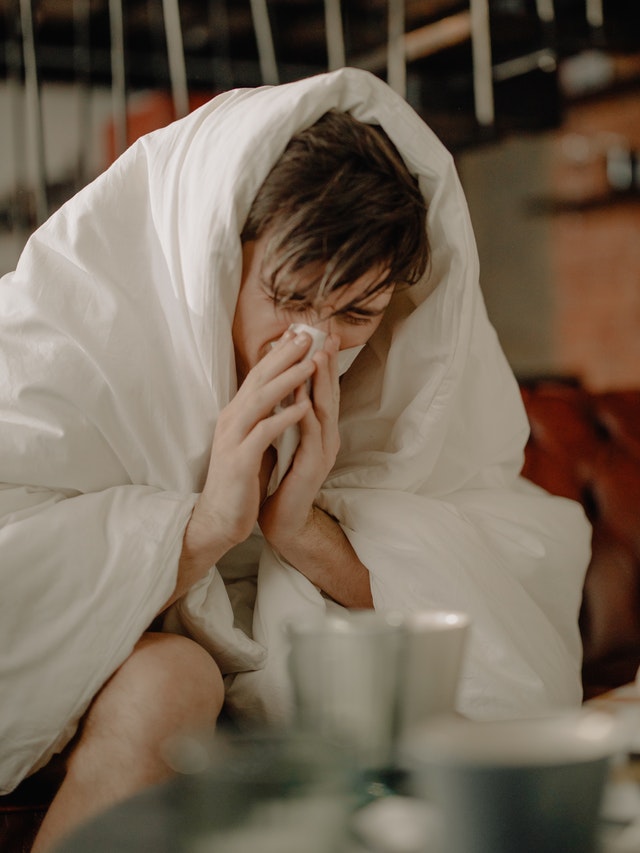While overproduction of it can become a nuisance, mucus serves a significant purpose: the lubrication and filtration of the respiratory system. Mucous membranes run from your lungs up to your nose. The membranes produce the mucus that acts as a glue or sticky substrate for viruses, dust, and allergens to stick to — think about it like a fly trap.
When these membranes are working optimally, mucus is usually not a problem. Unfortunately, the membranes can sometimes work too hard and overproduce mucus and phlegm, resulting in frequent throat clearing.
Causes of Mucus Overproduction

While there are many illnesses or conditions that can lead to excessive mucus production, your environment can also play a role. Some of the environmental and lifestyle factors that contribute to excess mucus and phlegm include:
- Dry indoor environments
- Dehydration
- Smoking
- High consumption of coffee, tea, and alcohol
- Certain medications
While environmental factors and lifestyle choices can lead to mucus overproduction, health conditions often contribute to the problem. The primary issues that lead to mucus overproduction include:
- Allergies
- Asthma
- Acid reflux
- Lung diseases
- Infections
Remedies for Mucus Overproduction

Many people will experience the overproduction of mucus at least once in their lives, but it is not a frequent experience. Other people have to deal with the problem regularly. If you deal with mucus overproduction frequently, you might want to consult your primary care physician to see if any underlying conditions are causing the problem.
For the occasional occurrence of mucus overproduction, a doctor might recommend either an over-the-counter or prescription medication. OTC medications include those under the category of expectorants. These medicines help to loosen and thin mucus, helping you clear it from your chest and throat as it becomes phlegm.
Some prescription medications fall under the category of mucolytics, like hypertonic saline and dornase alfa. These medicines are mucus thinners, and they are inhaled. A doctor might also prescribe antibiotics if the mucus problem results from a bacterial infection.
Home Solutions for Mucus Overproduction

Medications are not always necessary to alleviate excessive mucus production. In fact, there are at least seven things you can do to help resolve your phlegm and mucus problem.
The first thing you can do is gargle with warm saltwater. The saltwater kills any germs in the back of your throat and can help loosen mucus.
Second, make sure that your home is not too dry. Using a humidifier will help to thin your mucus.
Third, elevate your head. When you lay flat, mucus collects at the back of your throat, resulting in coughing and a need to clear your throat.
Fourth, avoid potential irritants, such as fragrances, pollution, and chemicals. Odorous materials can irritate mucous membranes, resulting in more mucus production.
Fifth, do not use decongestants. While decongestants are excellent medications for drying out secretions, they can actually make it harder to reduce mucus.
Sixth, stay hydrated. Drink plenty of water because it helps mucus flow while loosening congestion. While many people want to drink warm liquids, which can help, you should avoid caffeinated beverages.
Finally, if you smoke, stop. Smoking is notorious for instigating the overproduction of mucus.
The overproduction of mucus can be uncomfortable. There are many possible reasons for the problem, but talking with your doctor is the only way to know what is causing the issue. Have you ever tried any of the relief methods above? If so, which worked best?

